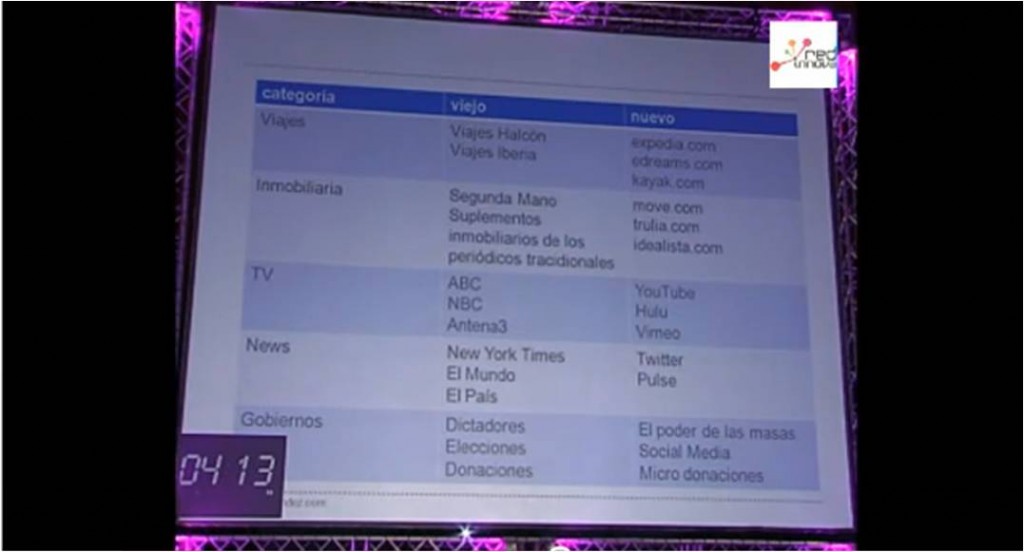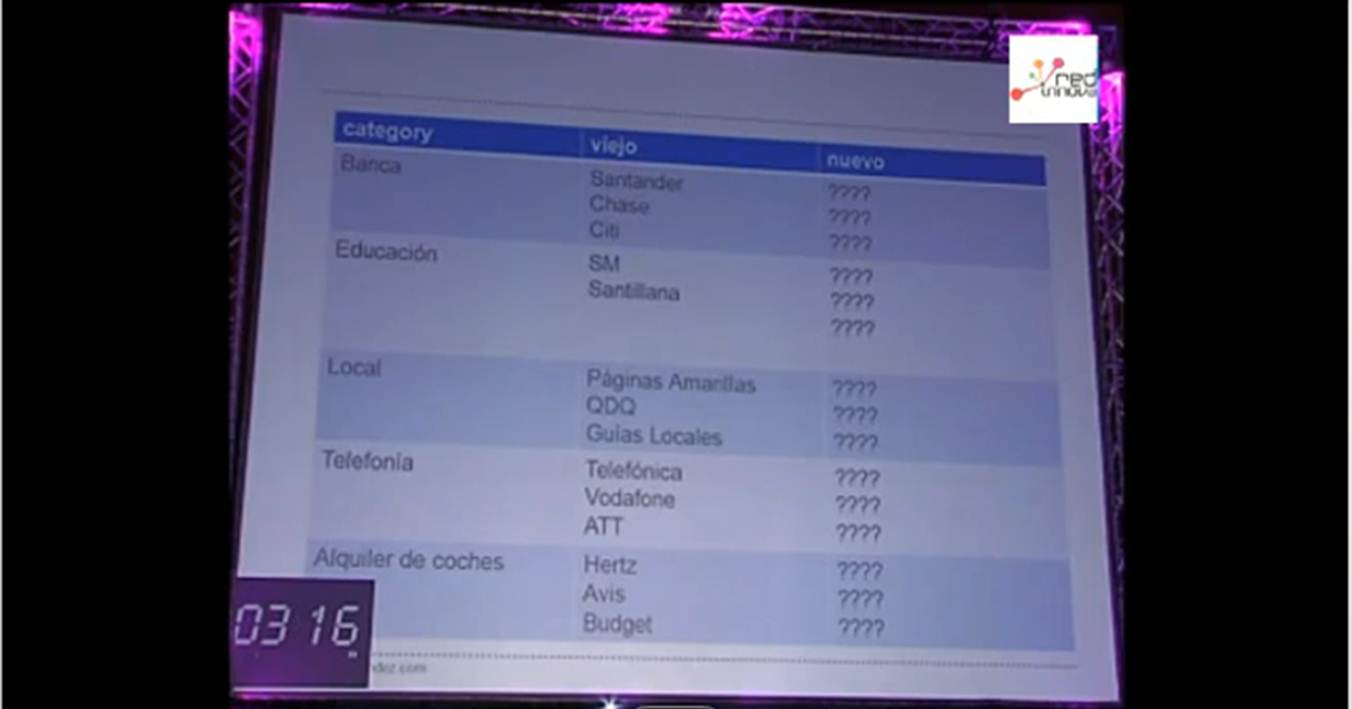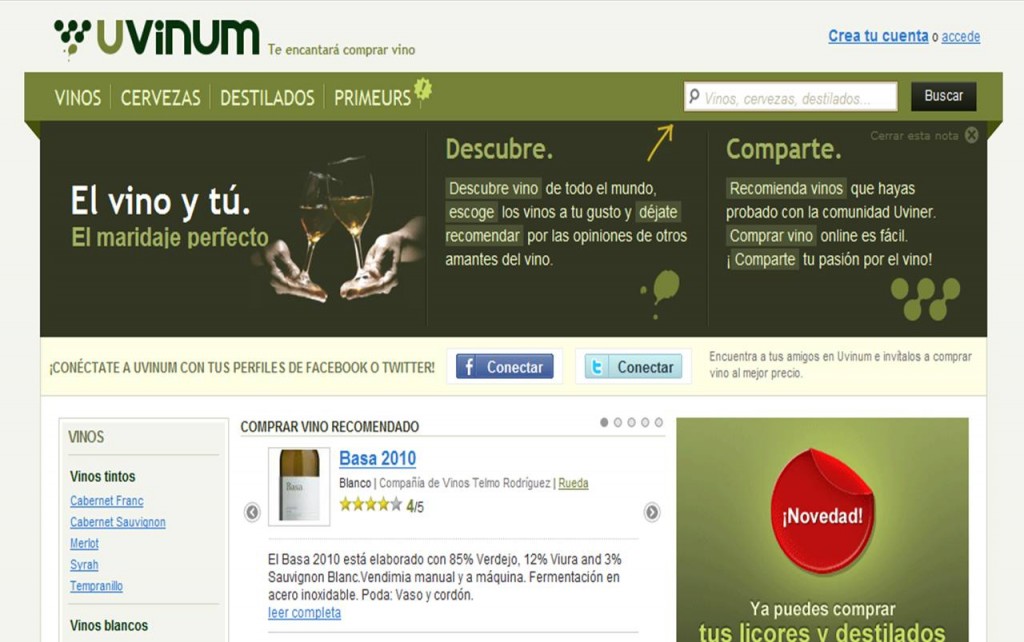No he escrito mucho hasta la fecha sobre venta digital. Consideraba que había un campo tan amplio en la promoción y generación de imagen por internet y social media que mi recomendación era que las Bodegas debían centrarse en darse a conocer y establecer una conversación con sus clientes, sus consumidores finales, sus prescriptores.
Había comprobado que algunos de los grandes bloggers de bodegas, para atender ese apartado habían puesto simplemente en su blog una dirección de correo a la que acudir para hacer pedidos.
Pero últimamente he desviado mi foco. ¿Y cuál es el debate. Pues el debate trata de quién está mejor posicionado, si las tiendas puramente digitales sin tienda física que lo soporte o tiendas mixtas.
Haber tomado uno u otro camino generalmente viene condicionado por de dónde viene uno. Disponer de unos recursos elevados para montar una tienda física o tenerla ya de entrada, puede hacer el camino más fácil. Permite conseguir rentabilidad en la versión digital mucho antes. Tus clientes, con solo haber visistado una vez la tienda, y habiendo comprado cualquier cosa por Internet, la decisión de comprar otra vez y en esta ocasión por internet no es difícil si les resulta más cómodo o más eficaz. Porque ya confían en ti y en la forma de pago que propones. La tienda, además puede aprovechar gran parte de su estructura para dar servicio en su versión digital. La inversión no tiene por qué ser fuerte. Y que sea el cliente el que decida por donde comprar. Uno de los problemas de las tiendas digitales es diferenciarse de otras tiendas, y dar mejor servicio para no tener que competir exclusivamente en precio. Que sean los servicios que presta la tienda física los que permitan esa diferenciación. Que el servicio que se preste en su versión digital sea tan bueno como el de la tienda física. Si es así, la tienda física y digital (modelo mixto), tiene todas las de ganar.
Pero luego uno acude a conferencias como ésta de Bernardo Hernández, director de nuevos desarrollos de Google mundial en la redinnova.com. En esta conferencia Bernardo habla de distintos sectores en los que los competidores en versión digital se han comido a los tradicionales en versión presencial. Eso ha ocurrido en agencias de viaje, inmobiliarias, televisiones, elaboradores de noticias. Y se empieza a hablar de otros sectores, como la banca, la educación, las páginas amarillas, la telefonía, el alquiler de coches. Y dice que no es cierto que Internet suponga el fin de la intermediación como se decía en un principio. Internet es el comienzo de la re-intermediación, de otra manera de intermediar, de intermediar creando valor añadido.
Y para ponerle más intríngulis al tema, aquí está esta conferencia, también de la redinnova.com de alguien tremendamente convincente que viene a decir que no es que sea mejor un sistema que otro pero que lo convencional o lo digital hay que llevarlo en el ADN de la empresa. Que no es fácil cambiar de un mundo al otro. Que las empresas mixtas lo tienen complicado. ¿Su autor? Guido Grinbaum.
¿Quién se llevará el gato al agua en las tiendas de vino?
Por si acaso, recomiendo a uno y a otros ponerse las pilas porque lo que viene sin lugar a dudas una competencia feroz. La crisis se c0me al que se quede atrás. Al que sea competitivo, los laureles del éxito.
Video por cortesía de marketingdirecto.com
Este post en inglés: What is the more competitive strategy ? To have only an on-line wine store or an on-line store and a physical store?
I have not written much up to this date on digital sales. I considered that there was such a broad field on the promotion and generation of image through social media and online Marketing and that my recommendation was that wineries should focus on getting known and establishing conversations with its customers, its end users.
I had noticed that some important winery bloggers used a simple email address for the people who want to get in contact for placing orders.
But lately I have diverted my focus. And the debate I want to get in is whether a pure online store is better positioned or not, if compared with a physical store that has also an online store.
Having taken one path or another is in general conditioned by where one comes from. Having the necesary resources or a physical store from the start can make the path much easier. This will make it much easier to get profitable from an online store. Your clients who have already visited your physical store and have bought already anything online once, will probably take advantage of the ease of buying online again. The store can take advantage of its existing infrastructure. Thus the investment does not have to be huge. Also, a client may need just one visit to your physical store, and may have just bought once on one online store, not even on your own store. And he may feel confident enough to buy from your online store, because he finds it more comfortable or more effective, and because he already trusts you and your payment method. It is the customer’s decision which purchase method he decides to use.
One of the main problems for the online stores is how to differenciate themselves from other online stores, and how to provide a better service in order to be competitive not only on price. If the service is provided by a physical store, allows you more easily to get such a differentiation. If you, with a mixed model (physical and on-line) suceed in giving such good service on your digital version as a specialized on-line store you may wind up in the nice situation of being more competitive than a pure on-line store.
But, on the other hand one goes to conferences like this one done by Bernardo Hernández, Google Global Manager of New Developments made in redinnova.com.. Bernard speaks at this conference about several sectors in which digital competitors have clearly beaten traditional competitors. This has happened in travel agencies, real estate, television, news producers, sectors. He thinks that maybe the next sectors in which this is going to happen again can be banking, education, yellow pages, telephone, car rental, and so one. He sumarizes saying that is not true that Internet means the end of intermediation as it was thought in the beginning, but the beginning of the re-intermediation. To add value is the key.
And to put more intricacies on the subject, here is this conference (in Spanish), of somebody extremely convincing also in redinnova.com. In the conference Guido Grinbaum does not wish to say that there is one system better than the other. Whether you are an online or a conventional company appears in the DNA of your company. But he also says that is not easy to change from one world to the other. And that mixed companies have trouble in being competitive in both worlds.
Who will win the upper hand in the wine sales?
Just in case, I recommend you get busy working no matter on what type your company is, because what is coming is a tougher competition. The crisis will swallow those who don’t work hard enough, and endow success on those who maintain themselves competitive.
Video courtesy of marketingdirecto.com
This post in Spanish: ¿Tiendas de vino exclusivamente digitales o tiendas mixtas?



